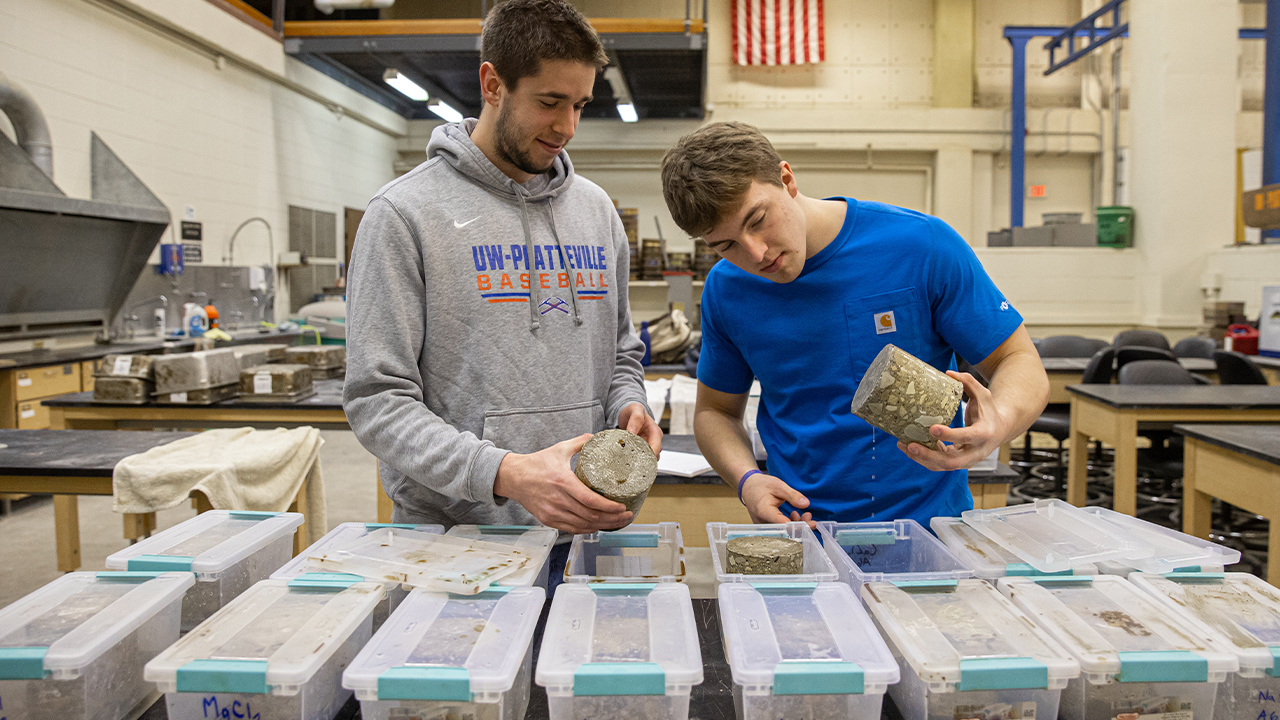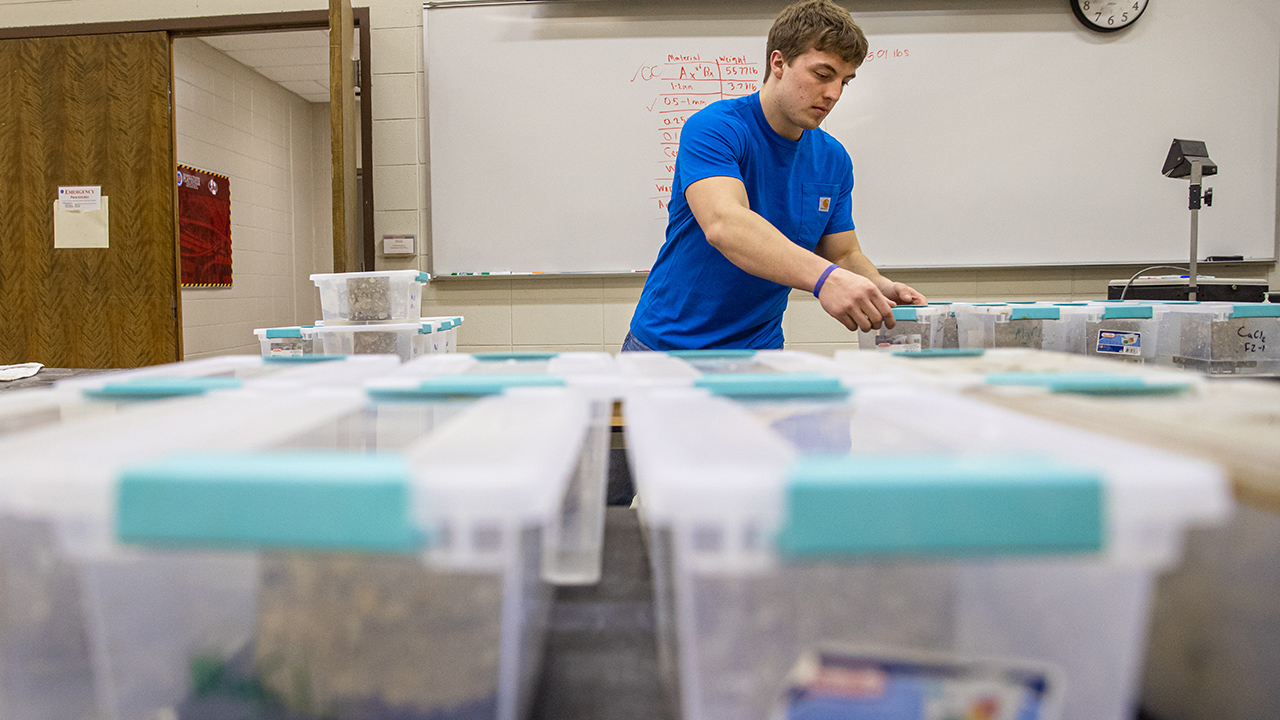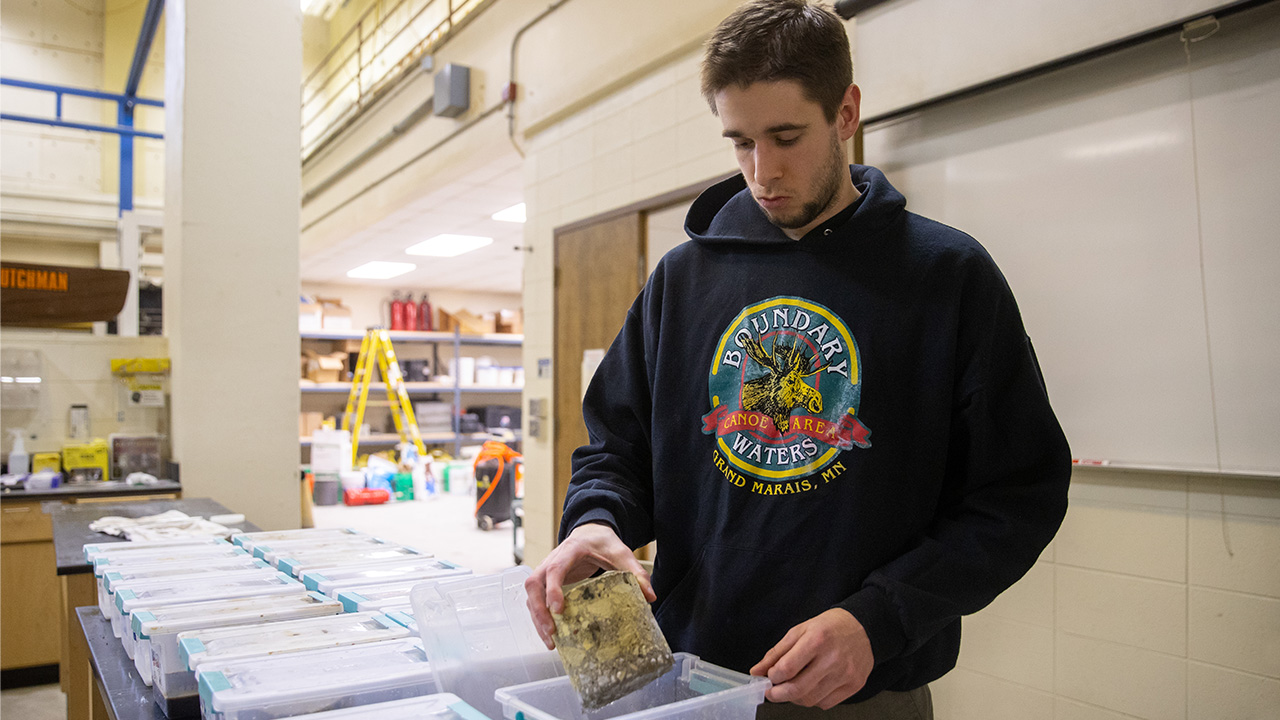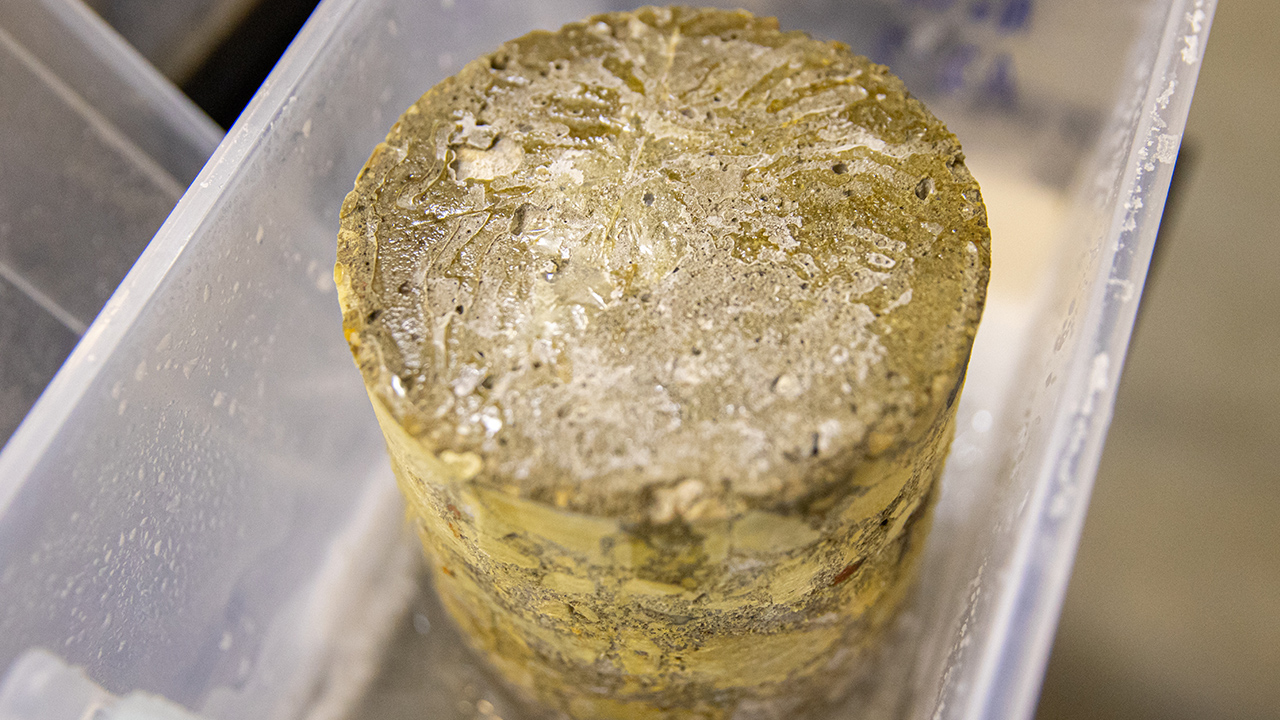



Two University of Wisconsin-Platteville engineering students are studying the effects of anti-icing on concrete and will present their findings at the 19th annual Research in the Rotunda on March 8 in the state Capitol. Senior Dylan Notsch and sophomore Will Straka are assisting Dr. Danny Xiao, associate professor of civil and environmental engineering, on the project titled, “Impact of Anti-Icing on the Durability of Concrete Infrastructure.”
“We’ve been working together with Dr. Danny [Xiao] for the last two years on the anti-icing project,” said Straka, a civil engineering major from Mineral Point, Wisconsin. “Our research includes both laboratory tests and field study. In the lab, we have conducted three phases of freeze-thaw test on concrete samples. In the field, we placed concrete panels in MnRoad, the largest road-testing site in the U.S. Anti-icing solutions and traffic load have been applied since November 2021.”
Straka and Notsch became involved with the project after receiving the Undergraduate Research, Scholarly and Creative Activity Scholarship their freshman year. Notsch, who has been working alongside Xiao since 2019, said throughout his four years of research, he’s conducted a series of freeze-thaw tests on large concrete specimens and saw significant differences between deicing and anti-icing solutions. Anti-icing can clear winter roads faster, reduce overall salt use, and also cause less damage to concrete than deicing does. He’s also learned the technical side of research.
“We have learned report writing, how to draft a technical poster, correctly preparing research per ASTM [American Society for Testing and Materials], teamwork and the implications of salt on concrete durability,” said Notsch, an environmental engineering major from Sartell, Minnesota.
The project is scheduled to end in September, but Straka states the group is also conducting other projects related to concrete durability such as surface treatment and hydrophobic concrete. Although Notsch is set to graduate this spring, Straka will continue to work with Xiao.
“Undergraduate research is a unique opportunity that few students get to experience,” said Straka. “It helps develop great relationships with other students and faculty advisors while getting hands-on experience in the field that interests you.”
As the students begin to wrap up their research, they’re excited to embark on their Research in the Rotunda poster.
“We are looking forward to representing UW-Platteville at the Capitol and hearing input and feedback from UW System peers and lawmakers,” said Notsch.
Straka added, “It gives us a chance to showcase our hard work over the past few years.”
To learn more about Research in the Rotunda visit, www.wisconsin.edu/research-in-the-rotunda/.